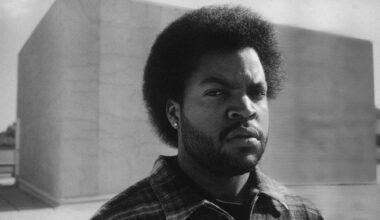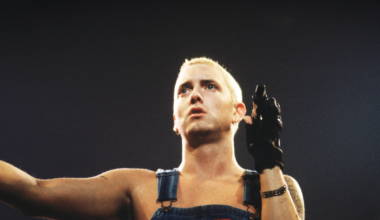“Bob Dylan is the father of my country,” Bruce Springsteen writes in Born to Run, his 2016 memoir. “Highway 61 Revisited and Bringing It All Back Home were not only great records, but they were the first time I can remember being exposed to a truthful vision of the place I lived. The darkness and light were all there, the veil of illusion and deception ripped aside.”
He continues: “He put his boot on the stultifying politeness and daily routine that covered corruption and decay. The world he described was all on view, in my little town, and spread out over the television that beamed into our isolated homes, but it went uncommented on and silently tolerated.” Like Dylan before him, The Boss looked to expose this underbelly.
So, he ventures to the impoverished outpost of ‘Atlantic City’, and he begins his excursion of the New Jersey underbelly, in the neighbouring state of Pennsylvania, with the line: “They blew up the Chicken Man in Philly last night.” Such was the extent to which he was searching for four chords and the truth; none of the poetry to this line was fabricated; he plucked it straight from a newspaper report.
The Chicken Man in question was the mobster, Philip Testa. For a time, Testa was the head of the Philadelphia crime family of the Italian-American mafia. He inherited the head of the table during a time of great unrest. His friend, Angelo Bruno, had been the previous boss, but he was killed by his own consigliere, Antonio Caponigro, in an attempted coup that ultimately led to the prompt revenge slaying of Caponigro himself.
The Philadelphia Mafia War was brewing. However, Testa had to get down to business. He saw an opening in the poultry industry; after all, everybody likes chicken, and so he also earned himself an unfortunate nickname.
Some 11 months into his tenure, along with a swathe of his closest associates, Testa was indicted indicted in a federal racketeering case. Using the newly enlisted RICO Act, the US Attorney’s Office in Philadelphia had him for gambling and loanshark operations. Clearly, the risk of him cooperating proved too great for the rest of the family because on March 15th, 1981, Testa arrived home, fumbled for his keys on the front porch, and the decking exploded beneath him where a nail bomb had just detonated, hence the lines: “Well, they blew up the Chicken Man in Philly last night / And they blew up his house, too / Down on the boardwalk they’re ready for a fight / Gonna see what them racket boys can do.”
In typical Springsteen fashion, again like his hero Dylan before him, he delves beneath the flashpoint of this headline. The succession of death in the crime family might have been an extreme example of a man handing on misery to man in America, but it was no less indicative. The protagonist himself puts his finger on how inescapable downward spirals perpetuate themselves, crooning: “I got a job and I put my money away / But I got the kind of debts that no honest man can pay.”
And the assimilation of greater woe is concluded in the final verse:
“Now I’ve been a-lookin’ for a job, but it’s hard to find
There’s winners and there’s losers
And I am south of the line
Well, I’m tired of gettin’ caught out on the losin’ end
But I talked to a man last night
Gonna do a little favour for him.”
And just like that, the almost comic upheaval of the Chicken Man’s demise is illuminated to be the mere culmination of disorder bred by poor folks finding themselves disenfranchised from society. The dream of escaping to Atlantic City, a pipe dream steadily turning sour in the life of a man who can’t escape his own tragic predicament, and making things worse in a bid to solve the matter.






